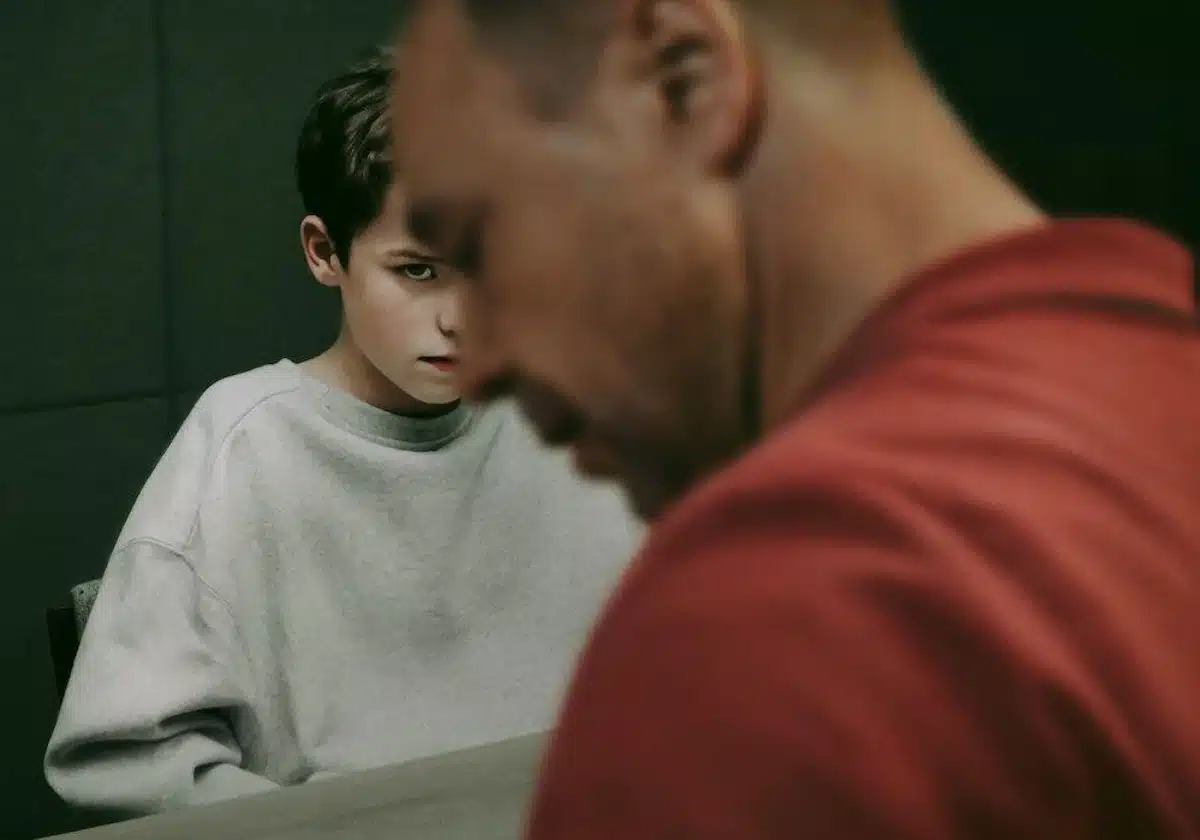The series Adolescence — now topping the charts on Netflix — hasn’t become a success because of its script, but because of its raw truth: one teenager, one screen, and a deafening silence at home. An uncomfortable mirror that has forced more than one parent to stop and ask themselves: Am I truly present in my child’s life?
What happens when a parent stops seeing their child?
This isn’t about abuse or explicit neglect. It’s about that unintentional indifference. About the adult who’s physically present, yet emotionally absent. About the moment when the emotional bond cools, the bridge begins to crumble, and no one bothers to ask: “How are you, really?”
According to the 2023–2024 UNICEF Barometer, this is already a reality for 41% of Spanish teenagers, who admitted experiencing mental health issues over the past year.
Mental health is the great silent pandemic
And we still refuse to believe it. We convince ourselves that organic food, a demanding school, and a parental control app are enough. But they aren’t. Because when a teenager feels “ugly,” it’s not just the algorithm’s fault, but also the reflection of a broken mirror they carry from home. Because when they lock themselves away with their phone, they’re not always escaping the world — sometimes, they’re searching for something they couldn’t find face-to-face.
The brain doesn’t wait
During childhood and adolescence, the brain is as malleable as it is unforgiving. What isn’t stimulated, is lost. And the most important learning isn’t academic — it’s emotional. It’s about connection. If attachment fails, if there’s no emotional connection with their parents, a child can live under the same roof… but no longer truly be there.
This reality highlights the urgent need for parents to be present, not as an option, but as an essential foundation for their children’s healthy development. It’s not enough to know they’re at home. You have to forge a close relationship, show genuine interest in their world, open up spaces for real conversation, and, of course, understand the content they are consuming.
Observe before acting
It’s not about control. Nor about throwing ready-made phrases on self-esteem or values into the mix. It’s about being there. Observing, without judgement, paying attention, looking for the exact moment the bridge broke — and rebuilding it.
Because not everything is about behaviour or biology. Sometimes, it’s about gaps in character, about inherited insecurities, about silences that wound more deeply than any shout. A teenager who grows distant isn’t always doing so out of rebellion. Sometimes, it’s simply because they no longer find an adult willing to listen without correcting them on the spot.
Social media: screen or sanctuary?
Social media isn’t the enemy. But it is often the mirror reflecting a long list of absences. In 2024, we are facing a generation that is more connected than ever — and lonelier than ever. Who’s to blame? It’s complicated. Parents, peers, the system… all of them, and none of them. But the symptom is clear: teenagers who compare, exhaust, and expose themselves, with no one to turn to.
The analysis published by Nueva Revista on this series is more than a cultural commentary — it’s a warning: family bonds are at risk. And the data from the 2023–2024 UNICEF Barometer confirms this with a chilling clarity: adolescents suffering in silence, lacking support both at home and at school, not knowing who to ask for help.
This will happen at home
It’s not exaggeration. It’s statistics. It’s observation. It’s experience. If we keep thinking adolescence is something teenagers will “get through” on their own, we are mistaken. They either have company on the journey, or they suffer it alone.
Character education isn’t optional. It’s the core. Teaching young people to think deeply. To make decisions with discernment. To act with purpose. And above all, to always return to that bond.
That emotional cord — which begins in the womb and should stretch across a lifetime — must never be broken. Not out of pride. Not out of distraction. Not out of complacency.
Being a present parent isn’t a trend. It isn’t a slogan. It’s an urgent need.
Observe. Listen. Reconnect.
Because sooner or later… it will happen at home.
María Asunción Rey Ballesteros
Character Education Expert and Programme Director at Fundación Parentes
